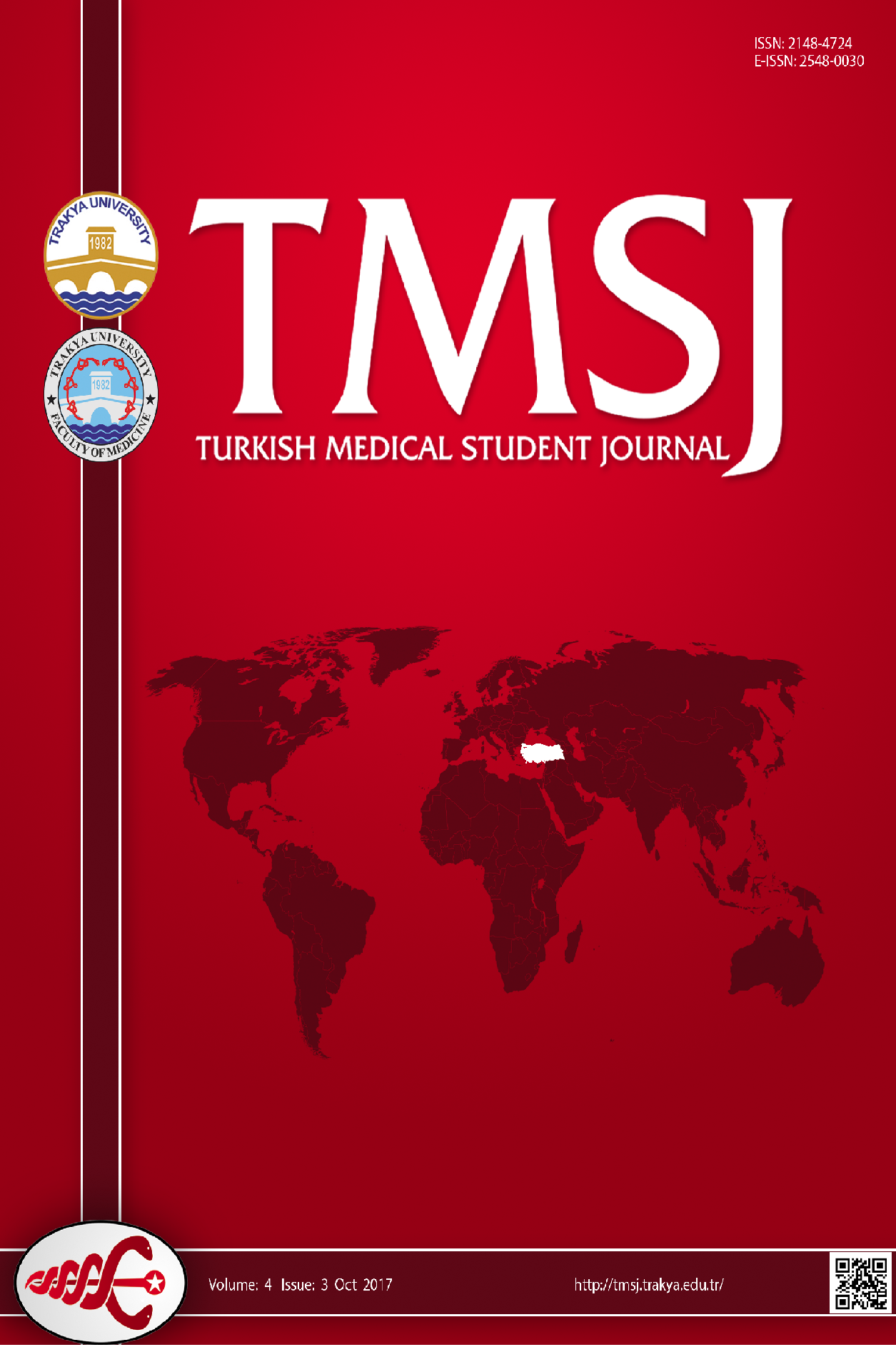
Turkish Medical Student Journal
Yazarlar: Irmak ÖZYİĞİT, Fatih Erkan AKAY, Elif CENGİZ, Janset ÖZDEMİR, Pınar TUNCER, Eylül ŞENÖDEYİCİ, Sarper KIZILKAYA, Ahmet Tolgay AKINCI
Konular:Tıp
Anahtar Kelimeler:Glioma,Hospitalization,Isocitrate dehydrogenase,Retrospective study
Özet: Aims: To evaluate the relationship between the length of hospital stay and age, gender, and disease characteristics among glioma patients who went under surgery in Trakya University School of Medicine. Methods: The data of 51 glioma patients over 18 years of age, who have been followed up during 2019-2020 in Trakya University School of Medicine, Department of Neurosurgery were analyzed. Patients' data comprised of sex, age, tumour location, grades of the tu- mours, the presence of isocitrate dehydrogenase mutation, whether the patients were hospitalized in the intensive care unit or the neurosurgery clinic, duration of hospitalization, and whether radiotherapy and chemotherapy was received. Length of hospital stay was evaluated separately as intensive care unit and the neurosurgery clinic. Results: Out of 51 patients diagnosed with glioma, 18 (35.3%) were female, and 33 (64.7%) were male. The length of neurosurgery clinic and intensive care unit stays were not associated with radiotherapy and chemotherapy approaches. There was a statistically significant difference between the male and female patients in terms of the number of days stayed in the neurosurgery clinic. Conclusion: In conclusion, gender affected the length of neurosurgery clinic stays with a longer duration for female patients in our clinic. A waste number of parameters, including social ones, affect hospital stays. To reveal predictors of postoperative hospitalization thoroughly and overcome the study’s limitations, further prospective studies with larger sample sizes are needed.